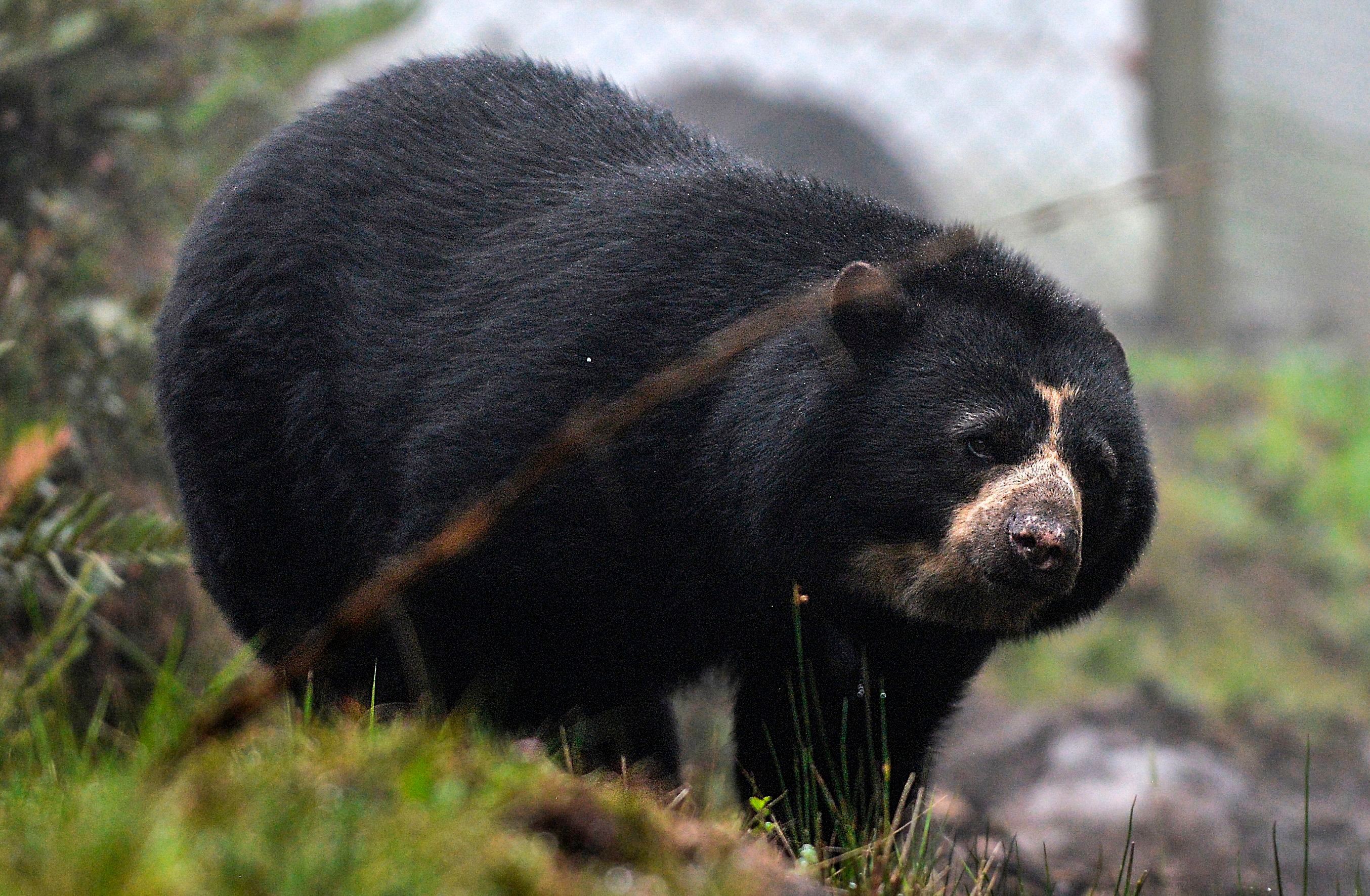Judges to decide fate of Paddington family’s ultra-biodiverse forest home in landmark ruling
Court must choose between mining licences and the ‘rights of nature’ in groundbreaking case with thousands of species at stake, writes Jane Dalton


In the film Paddington, the forests of South America are the furry hero’s native land – and represent all that’s good in the world.
Now, judges are poised to rule on the fate of a forest reserve that’s one of the most biologically diverse habitats in the world and home to Andean bears just like Paddington.
In a landmark test case, the first of its kind in the world, a court will decide whether mining licences take precedence over the “rights of nature”, which are enshrined in Ecuador’s constitution.
The Los Cedros forest, in the country’s northwest, is the terrain for thousands of species of flora and fauna, many already critically endangered, from wild cats including jaguars to rain frogs and brown-headed spider monkeys.
Hundreds of butterfly and bird species, such as the cloud-forest pygmy owl, and 187 species of orchid also thrive in Los Cedros. Covering around 12,000 acres, it is protected in law.
Although Paddington hails from neighbouring Peru, Andean bears — also known as spectacled bears — inhabit the mountains of South America, including Ecuador, where there are about 2,000.
But mining giants from Canada, China, Australia and Ecuador itself have rights, or “concessions”, to drill and explore for copper and gold in about 2 million acres of the forest, which ecologists say threatens the future of its rich wildlife.
Environmental campaigners say if the judges uphold the constitutional rights of nature, it will preserve not only Los Cedros but potentially all 186 protected forests in Ecuador, totalling at least 6 million acres.
Last year, leaders of the canton of Cotacachi, where the forest sits, won a court battle to protect it but Ecuador’s national mining company, Enami EP, appealed. A decision rests with the constitutional court, the highest court in the land, after a week of hearing evidence from lawyers on both sides, conservationists and scientists.
As well as its vast biodiversity, the forest absorbs large amounts of damaging greenhouse gases, it was argued. Dan Thomas, a biologist, said its carbon stocks were estimated to be worth at least $210m (£161m).
Ecuador was the first nation to include the rights of nature in its constitution and activists say this case sets a precedent worldwide for “ecocide laws”.
But the state has the right to extract minerals regardless of whose land they are located under, according to the constitution.
Andean bears are scientifically classified as vulnerable because their homes are also being destroyed for roads, timber and firewood, illegal crops such as opium, and petroleum exploration.
Monica Feria-Tinta, a London barrister acting to protect the forest, told The Independent that Ecuador’s obligations under treaties such as the 1992 Convention on Biological Diversity and the Paris Agreement made it legally binding for Ecuador to protect the forest, not destroy it.
“It will also be likely to inspire other jurisdictions to develop similar approaches to the protection of the natural world including biodiversity and species,” she said.
“In deciding this case, the court will no doubt consider the notion of ‘generational harm’ likely to arise from the extinction of a natural world not to be found anywhere else. This is harm that would impact not only the current generation and the natural world, but future generations.”
Since 2008, an estimated 1.8 million acres of Ecuador’s protected forests have been made available for mining exploration, according to the Rainforest Information Centre, an environmental group.
Canadian mining company Cornerstone Resources has worked in the reserve for many years, and Australian company BHP also has concessions.
An open letter to the judges says: “The destruction of forests releases around six billion tons of carbon dioxide into the atmosphere per year, and given that the mitigation of the effects of climate change due to deforestation is included in the constitution of Ecuador, considering the ongoing climate emergency, the need to keep reserves like Los Cedros intact takes on added urgency.”
Nicola Peel, an environmentalist who gave evidence to the court, said: “This is a step towards recognising the rights of nature and the law of ecocide.”
Cornerstone Capital Resources has previously told Reuters that Ecuador’s protected forests are “open to mineral exploration but are subject to strict environmental standards and obligations supervised by the ministry of environment".
Mining companies are obligated to remediate any environmental damage that may occur, it said.
The Independent has also asked the two mining companies to comment.
The judges have not said when they will give their verdict.


Join our commenting forum
Join thought-provoking conversations, follow other Independent readers and see their replies
40Comments